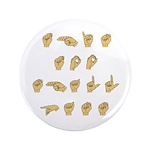It used to be that you would do a search on a relevant subject and get blog posts, forums posts, and maybe a couple of relevant companies offering the product or service. (And if you wanted more information on said company you could give them a call and actually talk to a real person about said service) You could even trust amazon and yelp reviews. Now searches have been completely taken over by Forbes top 10 lists, random affiliate link click through aggregators that copy and paste each others work, review factories that will kill your competitors and boost your product stars, ect… It seems like the internet has gotten soooo much harder to use, just because you have to wade through all the bullshit. It’s no wonder people switch to reddit and lemmy style sites, in a way it mirrors a little what kind of information you used to be able to garner from the internet in it’s early days. What do people do these days to find genuine information about products or services?


I think in English that term might be media literacy, but as you observe, it’s not terribly common, which is frustrating given that it’s been needed even prior to the internet’s emergence.
Is “media literacy/competency” taught much in Germany, but perhaps not well? Either way, your advice is good even if it wasn’t taught or taught well!
No unfortunately not. There are some movements that try to get it into the learning plan of schools but with not much success yet.
So right now parents have to teach their kinds, but many of them don’t have any competence on their own, so no teaching happens on times were the negative movements learn (or already learned) to use this lack of knowledge to manipulate.
Phishing is one of the best examples.
I feel how I get frustrated while writing :D